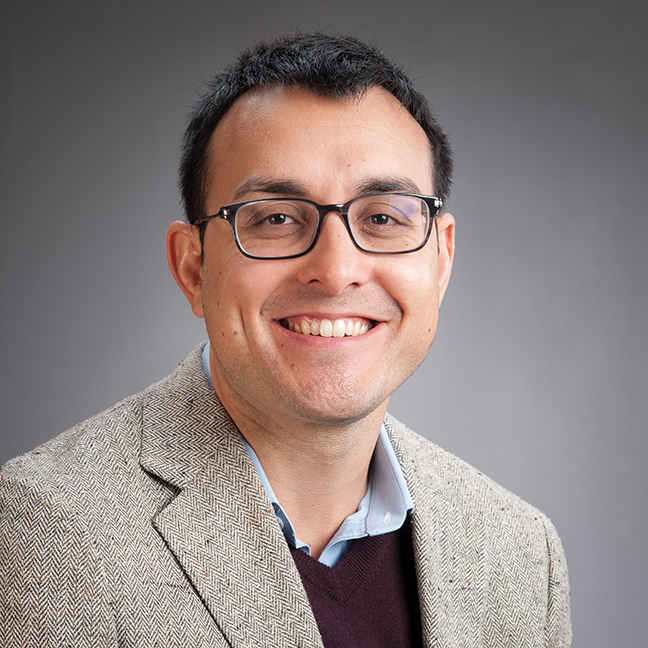This is the third of five interviews with prominent US scholars on an upcoming South Korea-US summit and the alliance. -- Ed.
With the first summit between Presidents Moon Jae-in and Donald Trump just around the corner, a renowned US expert painted a grim outlook for the meeting, saying there appears to be “little room for good news” and plenty of opportunities for the two leaders to create bad news.
“A quiet outcome would be the best outcome from any summit between the US and South Korea in the age of Moon and Trump,” said Van Jackson, a professor of international relations at Victoria University of Wellington, in an email interview with The Korea Herald.
The reason behind such worries, the scholar said, was that both Moon and Trump have been so consumed with domestic politics that they appear nonchalant about a “deep fracture” emerging in the decadeslong alliance.
“I’m really concerned that the US and South Korea might allow craven domestic political calculations to drive alliance policy,” said Jackson who served as an associate professor at the Asia-Pacific Center for Security Studies, a Pentagon think tank in Hawaii.
With the first summit between Presidents Moon Jae-in and Donald Trump just around the corner, a renowned US expert painted a grim outlook for the meeting, saying there appears to be “little room for good news” and plenty of opportunities for the two leaders to create bad news.
“A quiet outcome would be the best outcome from any summit between the US and South Korea in the age of Moon and Trump,” said Van Jackson, a professor of international relations at Victoria University of Wellington, in an email interview with The Korea Herald.
The reason behind such worries, the scholar said, was that both Moon and Trump have been so consumed with domestic politics that they appear nonchalant about a “deep fracture” emerging in the decadeslong alliance.
“I’m really concerned that the US and South Korea might allow craven domestic political calculations to drive alliance policy,” said Jackson who served as an associate professor at the Asia-Pacific Center for Security Studies, a Pentagon think tank in Hawaii.

Since the change of administration both in Washington and Seoul, signs of discord have appeared regarding the allies’ security and economic arrangements, including their trade pact, cost sharing for US forces in South Korea, the deployment of a US missile shield and their approaches to dealing with North Korea’s nuclear program.
In April, Trump caused a stir in Seoul when he threatened to revise the Korea-US trade pact and to withdraw the US missile shield known as Terminal High Altitude Area Defense, unless South Korea pays $1 billion for it.
Moon, who advocates Seoul having a greater voice in its relations with the US and on North Korean matters, has also irked Washington by suspending the process to deploy the THAAD system in South Korea.
“I think there’s a possibility that President Trump and President Moon would both be fine with a deep fracture in the alliance, and I also think that view shows a dangerous lack of strategic perspective,” Jackson said.
According to the expert, Moon has “little margin” to negotiate a meaningful deal with Trump, as the US leader is caught up with a political scandal over the administration’s dubious ties with Russia following the dismissal of ex-FBI chief James Comey.
Jackson also asserted that Moon’s foreign affairs approach, hijacked by a handful of progressive scholars, is “out of step” with regional and global trends to strike a meaningful deal with the US.
“The world has changed significantly during the last 10 years that progressives were out of power, and (their view) about China and the alliance is dangerously out of step with regional and global trends.”
One case in point is Moon’s surprise decision to halt the THAAD deployment. Initially designed to provide layered defense against North Korean missiles, the THAAD has become a key test of the allies’ resolve against China’s growing assertiveness, the scholar said.
Since the allies announced the Korean introduction of the US missile system last year, China has taken what appeared to be retaliatory measures against South Korean tourism and retail businesses, saying the platform’s powerful X-band radar could spy into its territory.
“Moon really needs to lift his head up from the Korean Peninsula for a moment, look at the campaign of political expansion China is pressing across the Asia-Pacific, and connect that back to what China’s doing to South Korea regarding THAAD,” Jackson said.
“China is not concerned with South Korea’s security. The same might be said of Trump personally, but Washington and US foreign policy elites place the highest value on the alliance and South Korea’s security.”
Regarding the death of US college student and former North Korean prisoner Otto Warmbier last week, Jackson said unless Seoul and Washington decide to politicize the tragic event, it would have limited impact on security dynamics on the peninsula.
But if the incident leads the US to impose a travel ban on North Korea, it could undermine ongoing efforts to open up the isolated North through social and cultural exchanges with the outside world, the scholar predicted.
“My main concern with any kind of travel ban (on North Korea) is secondary effects it might have on Track II diplomacy or the work of humanitarian NGOs … a ban could still create barriers to what might be important or useful interactions with the North,” he said.
By Yeo Jun-suk (jasonyeo@heraldcorp.com)



![[Herald Interview] 'Amid aging population, Korea to invite more young professionals from overseas'](http://res.heraldm.com/phpwas/restmb_idxmake.php?idx=644&simg=/content/image/2024/04/24/20240424050844_0.jpg&u=20240424200058)


![[Pressure points] Leggings in public: Fashion statement or social faux pas?](http://res.heraldm.com/phpwas/restmb_idxmake.php?idx=644&simg=/content/image/2024/04/23/20240423050669_0.jpg&u=)











